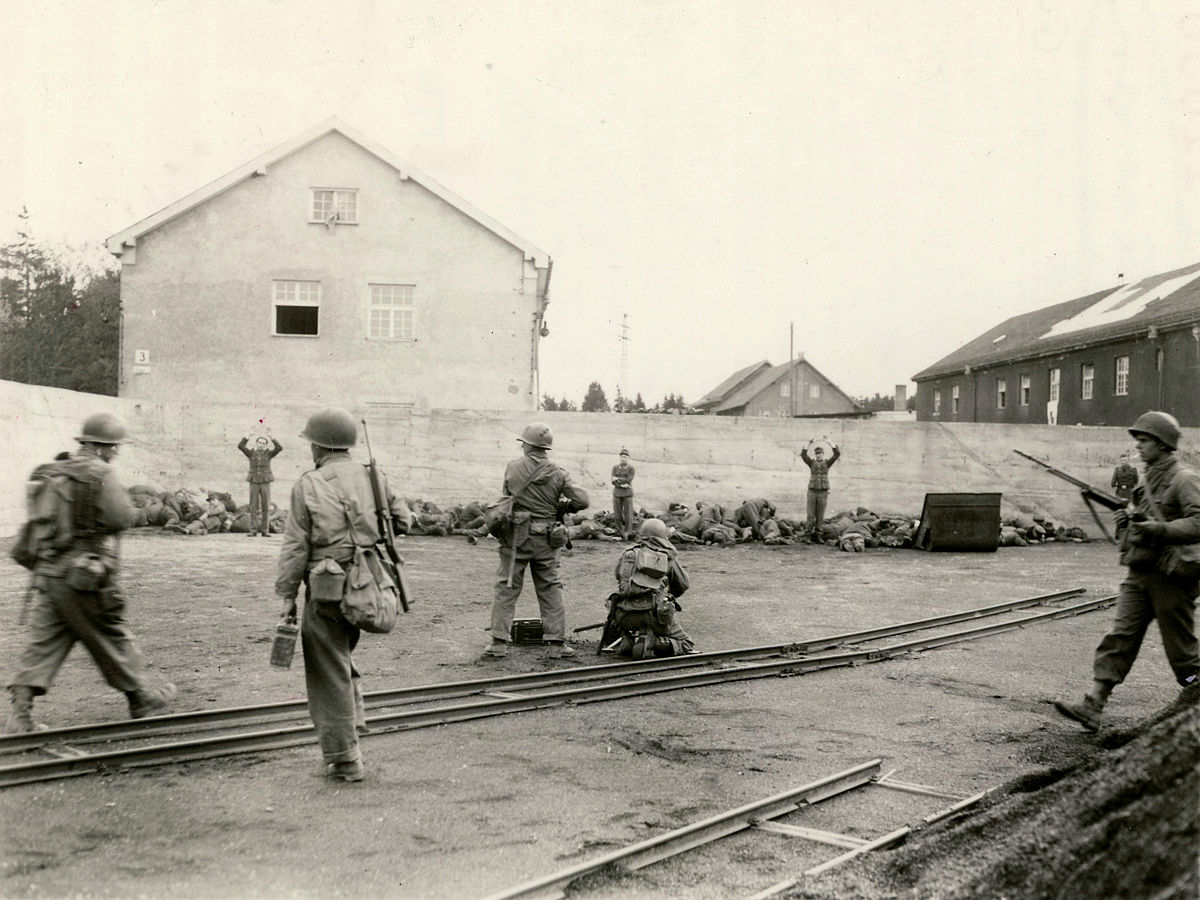Return to Liberators || Return to Witnesses
“Tell us who were there that it never happened”
Remarks of Lt. Col. Felix Sparks Dachau Liberator
given on May 8, 1995 at the U.S. Holocaust Museum.

I have before me a document prepared by the Institute for Historical Review, Costa Mesa, California. It can be purchased from that so-called historical institute at a price of $2.00 for ten copies. This so-called document professes to prove that the Holocaust never happened. It asserts that there is no evidence to prove that any member of the Jewish faith was ever persecuted or died at the hands of the Nazi Government of Germany. Among other things, it is claimed that gas chambers and crematoriums were constructed after the war as tourist attractions. The document contains a total of 66 questions and answers to prove that the Holocaust never happened.
I beg to disagree with the authors of this totally sick and false literature. I am in a good position to disagree. On the morning of April 29th, 1945, I was a lieutenant colonel commanding an infantry battalion of the United States 45th Infantry Division, with the mission of breaching the defenses of the city of Munich, Germany, in my assigned combat sector. Shortly after I had launched an attack against the outer defenses of Munich, I received an order to immediately proceed to the Dachau Concentration Camp. I knew nothing about the camp, nor had I ever heard of it.
Our first experience with the camp came as a traumatic shock. The first evidence of the horrors to come was a string of forty railway cars on a railway spur leading into the camp. Each car was filled with emaciated human corpses, both men and women. A hasty search by the stunned infantry soldiers revealed no signs of life among the hundreds of still bodies, over 2,000 in all.
It was in this atmosphere of human depravity, degradation and death that the soldiers of my battalion then entered the camp itself. Almost all of the SS command guarding the camp had fled before our arrival, leaving behind about two hundred lower ranking members of the command. There was some sporadic firing of weapons. As we approached the confinement area, the scene numbed my senses. Dante’s Inferno seemed pale compared to the real hell of Dachau.
A row of small cement structures near the prison entrance contained a coal-fired crematorium, a gas chamber, and rooms piled high with naked and emaciated corpses. As I turned to look over the prison yard with un-believing eyes, I saw a large number of dead inmates lying where they has fallen in the last few hours or days before our arrival. Since all of the bodies were in various stages of decomposition, the stench of death was overpowering.
The men of the 45th Infantry Division were hardened combat veterans. We had been in combat almost two years at that point. While we were accustomed to death, we were not able to comprehend the type of death that we encountered at Dachau.
Many of the prisoners were still alive, but many were dying as we arrived and continued to die at the rate of over a hundred a day for about two weeks after our arrival. There were over six hundred troops from the 45th Infantry Division who were in Dachau on the day of liberation, along with some troops from the 42nd Infantry Division. During the month of April, 1945, several hundred other slave labor and death camps were liberated by American, British and Russian soldiers.
Most certainly, there were well over a hundred thousand Allied soldiers who were eyewitnesses to the unspeakable horrors of the Holocaust, along with a considerable number of Holocaust survivors. To those sick people in our society who say that it never happened, I say:
Tell us who were there that it never happened, instead of trying to disseminate your bigotry and hatred by total revision of the Holocaust history. Your efforts will never prevail. This remarkable United States Holocaust Memorial Museum in which we are all assembled today will always stand as a living monument to remind us forever that caring men and women must always actively resist those forces of evil which practice intolerance, bigotry, hatred and slavery.
Felix L. Sparks
Brigadier General, AUS (ret)



